Last week I participated in Writer’s Digest's One-on-One Agent Bootcamp. The course included a presentation on the materials you need to submit to a publisher (i.e. query letters, book proposals and synopses), six hours of agent access via a discussion board, and a critique of a query letter and ten pages of a manuscript.
I have heard a lot of tips about the finding-an-agent process over the years. However, as I sifted through the questions and answers in the Writer's Digest discussion board, I was happy to stumble upon some new advice.
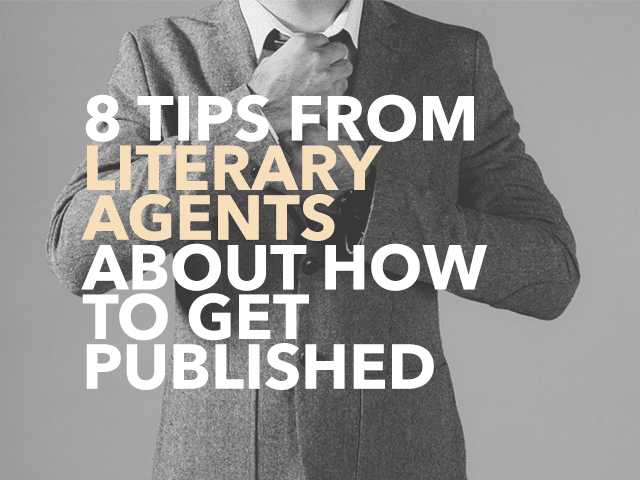
Below are eight tips from professional literary agents that I hadn’t quite heard before:
Literary Agent's Advice on Query Letters
- If you hired a professional editor to review your manuscript (especially if you are a debut novelist), mention it in your query letter.
- Don’t bother with gimmicks in your query. Gimmicks show up frequently. The best queries are the ones that are simply professional.
- Mention books similar to yours (i.e. comparable titles). If no one book quite explains what a literary agent should expect, try using two (e.g., one that has a similar voice and another that is written in a similar format). But try not to use more than two.
- Your query should be perfect. According to one agent, forty percent of queries are rejected for being poorly written or unprofessional. These are things in your control. Spend the time (and perhaps the money on editing services if you can) to make your submissions the best they can be.
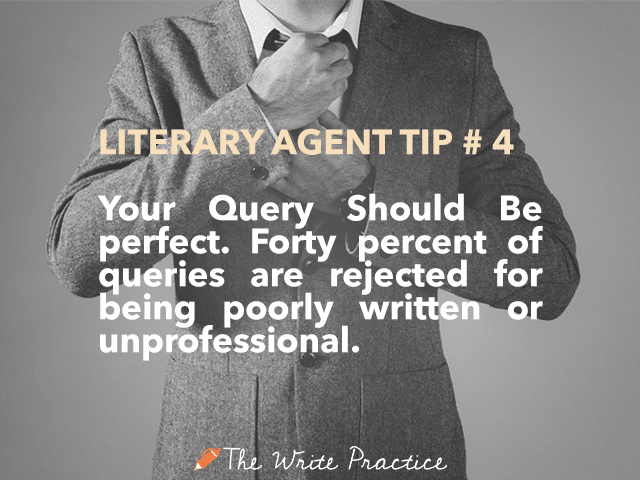
Tips for Other Submission Materials
- Don’t kill yourself over the synopsis. Everything you submit is important, but the purpose of the synopsis is to provide an overview of the novel—it has a practical function. The literary agents in the Bootcamp, for example, use synopses only after they have read an author’s initial pages and want to see how the story ends. That said, the synopsis still must be well written and accurately convey the plot.
- When an agency asks for “ten pages” give them the first ten pages—and in order. Oh, and make sure they have page numbers.
Manuscript Advice from Literary Agents
- Be careful with prologues. While not necessarily a deal-breaker, apparently some literary agents direct their interns to be wary of prologues to help them weed through the slush pile.
- Watch your word count. Most novels shouldn’t be more than 90,000 words (although Fantasy novels are typically longer). Too many words suggests padding, too much back story, overwriting, or too much exposition. If you’ve revised for these things and your word count is still, say, 145,000 words—consider pitching a series.
And a Tip About You
- Have an online presence. As a blogger, this seemed obvious to me. However, many participants seemed surprised by how important it was for even aspiring authors to have an online presence. It doesn’t have to be crazy—a Facebook page, a simple website with your bio, etc.—but agents should be able to find you online.
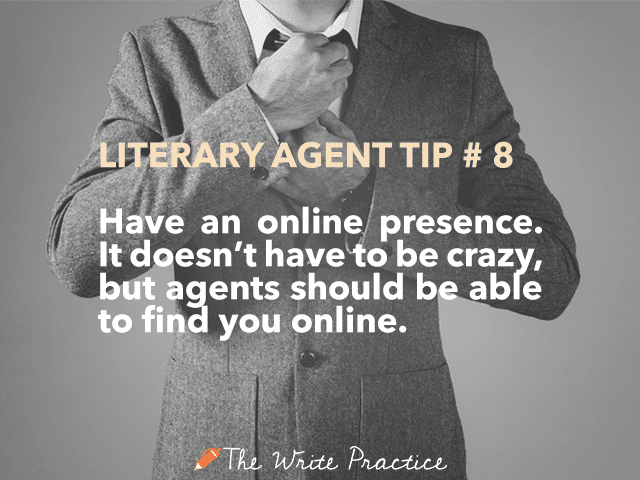
Have you heard any good tips for navigating the query/submission process? Let us know in the comments section.
PRACTICE:
Take fifteen minutes to take a stab at a query letter that pitches your manuscript to a potential literary agent. Share in the comments section!
[wp_ad_camp_2]
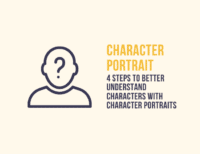
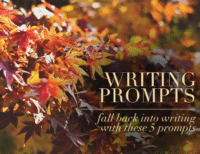
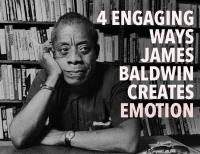
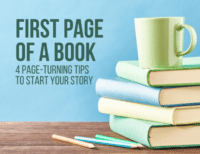



This is perfect for me right now as I’m currently working on revising my query letter. 🙂 Great post with great tips! Although I am curious about the word-count. Would a dystopian be lumped in with fantasy? My YA dystopian novel is at 120,000 words, and I’m not sure if that’s too long or not.
That’s actually a really good question because arent YA novels typically shorter? Maybe you have 2 books!
That is too long. Aim for no more than 80,000 words for YA.
One good suggestion would be to visit different publishers’ websites in
your chosen genre to see if they state the word counts they are looking
for. One publisher of fantasy/SF that I’m looking at expects novels to
be within the 100K range, even stating that they seldom consider works
that are below that bar. There are also publishers who are also willing
to make an exception on word count — just look at the success of Harry
Potter! Previously books of that size for that age group would be
unimaginable. Of course, you need a strong novel and query that makes them want to
budge on that bar.
Great information! I’ve saved the link for future reference.
Looks like an interesting article, thanks for sharing. 🙂
Wonderful suggestions, Monica! The only one I hadn’t considered, but it’s oh, so very important: your #1: telling them if your novel has been professionally-edited. HUGE!
I know right?! I had no idea!
Me, neither, but it makes perfect sense because that means your manuscript has already been taken up a notch. Great post.
It also means that you are taking a professional stance with your writing. That means you are a better candidate for business.
Exactly, Anna. What a terrific idea.
It would be good to see some examples of all the above mentioned paperwork. Does anybody have any suggested links that I could explore?
Great post.
Thanks
Dawn
Dawn, try this http://www.writersdigest.com/editor-blogs/guide-to-literary-agents/successful-queries
Thanks Anna, an excellent link.
Warm Regrds
Dawn
Thanks for sharing this link!!
I also struggle with coming up with titles or books that are like my manuscript. To be honest I’m sure they’re out there I just haven’t come across them. So that always throws me a little.
Just sayin’. 🙂
Useful list, well presented! I’m just starting out in my exploration of my own creative writing skills, so I’m nowhere near publishing (if ever??), but it’s never too early to start learning the ins and outs of what to keep in mind.
Thanks for sharing the information!
My dearest Monica,
Your article is delightful. I have bookmarked it to use for future reference.
Thank you for sharing your wisdom.
All my best,
xo
Love Pooh
Thank you for this. Great tips for when the time comes!
Query letters. The future bane of my existence. I haven’t had to write a query letter up til now but since I am working on novel/novels that I hope to publish sometimes in the future (Hopefully) I have a dreaded feeling this will be the hardest part after finishing a story. Just the thought of them makes me flinch.
Nice article!
Saving and sharing – thank you!
Thanks, Monica. Good advice never gets stale or goes out of style